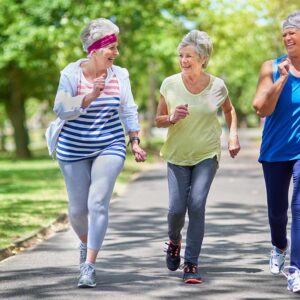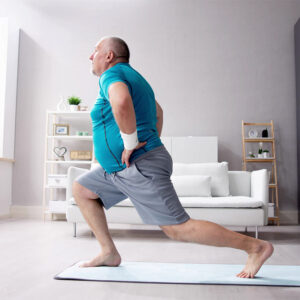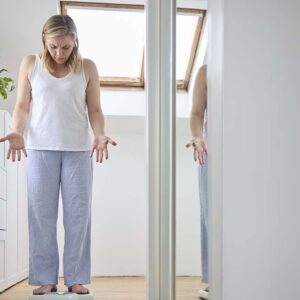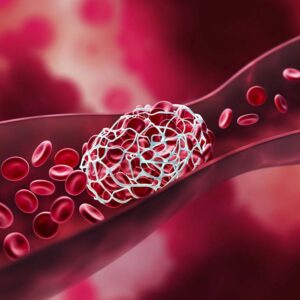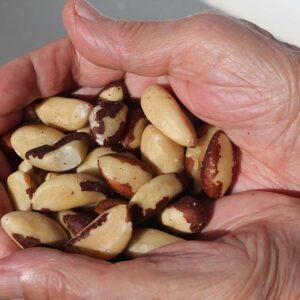
How to Cut Your Risk of Dementia in Half
Dear Living Well Daily Reader,
You may already know that eating right, taking care of your heart and supplementing with certain vitamins and nutrients like B12 and curcumin are great ways to keep your mind sharp and stave off the devastating effects of dementia.
However, there is another component that’s just as important as diet and supplementation.
In fact, this one easy solution can slash your risk of dementia by 50 percent.
But the good news doesn’t stop there — this common practice can even increase the size of your brain.
Plus, it only takes minutes out of your day to do.
This one simple thing can thwart the dangers of cognitive decline and help you keep a healthy, active brain well into your golden years.
So what is this magic bullet?
It’s not a dangerous prescription drug…
Or even a superfood…
No, it’s one thing that every health care professional tells you to get more of — exercise.
But don’t worry. New research shows that you don’t have to be a marathon runner or Olympic gold medalist to reap the brain benefits of movement.
![]() Walk Away From Dementia
Walk Away From Dementia
Research from the Alzheimer’s and Dementia Care Program at the University of California, Los Angeles shows that folks who regularly participate in moderate exercise can decrease their chances of dementia by 50 percent when compared with those who get little to no exercise.
The study included about 3,700 participants age 60 or older, and tracked their exercise frequency over the course of a decade. During the study, 236 of the participants developed dementia.
To analyze the effects physical activity has on the risk of developing dementia, the scientists sorted the participants into five different groups that ranged from sedentary to highly active.
And what they found was shocking!
Those who were the most sedentary were 50 percent more likely to be diagnosed with dementia than any other group.
Put another way, even just a bit of exercise helped fight the development of dementia.
Through brain scans, the researchers also found that the participants who exercised more had larger brains than those who didn’t. As the brain shrinks with age, it’s beneficial to have a more voluminous brain. It may better withstand the cognitive threats of aging.
![]() More Health at a Moderate Pace
More Health at a Moderate Pace
In addition, participants who were 75 years or older experienced the most protective effects of exercise against dementia. Dr. Zaldy Tan, a researcher in the study and medical director at UCLA’s Alzheimer’s and Dementia Care Program, reports:
It doesn’t take a lot of exercise to stave off the risk of dementia. Even moderate amounts are fine. The message here is that you’re never too old to exercise and gain benefit from it. These patients derive the most benefit from exercise because they are the ones who are at the age of greatest risk for dementia.
So what counts as moderate exercise?
According to the study, folks who worked up a light sweat at least two hours a week through any activity saw a reduction in their risk of developing dementia. Forms of moderate physical activity include walking, bicycling, gardening and ballroom dancing.
But increasing your exercise level can be as simple as doing a few more daily chores or taking one more trip to the mailbox. Start where you are, and increase your exercise gradually. If you walk an average of 1,000 steps a day, first challenge yourself to take 1,200, and then continue to increase your steps over time.
Live well,

Natalie Moore
Managing editor, Living Well Daily
Sources
[1] Physical Activity, Brain Volume, and Dementia Risk: The Framingham Study
[2] Exercise Lowers Risk of Dementia, Improves Memory
[3] Even a Little Exercise May Help Stave Off Dementia
Written By Natalie Moore
Natalie Moore is a dedicated health researcher with a passion for finding healthy, natural, and science-based solutions. After a decade of direct healthcare experience in western and natural medicine, she was involved in public health research before joining Living Well Daily.
View More Free Articles
Take the SHORTER Path to Dramatically Better Health
Are you tired of fitness gurus preaching the virtues of 5 AM workouts and pushing Olympic-level training regimens? Their narrative can feel exhausting and entirely unattainable. But before you toss in the towel completely, I’ve got news that might just put a spring back into your step. A groundbreaking new study reveals that the key...
Unexpected Perks of Your Coffee Habit Revealed!
We all know that the first cup of coffee in the morning can FEEL like a lifesaver. But what if it might actually BE saving your life? A groundbreaking new study suggests that your daily coffee habit could be protecting you from not just one but multiple chronic diseases. Let’s pour over this fascinating research…...
The TRUTH About Diabetes Drugs and Brain Aging
You’ve probably seen the gushing headlines… Most say something like, “Common diabetes drug protects the brain against aging!” And let’s face it, that sounds fantastic. After all, who doesn’t want to keep their brain young and in tip-top shape? The headlines refer to the results of a new study that suggests the widely prescribed type...
Hidden Smartphone Danger Puts You at Risk
Remember when we thought cell phones were just something for young folks to obsess over? Back when we were convinced they were nothing more than a passing fad? Well, times certainly have changed. Now, most people… including many of us older folks… have jumped on the smartphone bandwagon. Heck, some of us are practically as...
Preserve Your Mobility with “Agile Aging” Exercises
Aging has a way of humbling us. You lose hair where you want to keep it—and often end up growing it where you don’t. With every passing year, your eyesight fades, and your waistline expands. And as your once quick pace begins to slow, you fear developing the dreaded “senior shuffle.” But here’s the thing....
Yes, Lazy Saturday Lie-Ins Can BOOST Your Health
Are you burning the midnight oil during the week and catching up on sleep on weekends? Well, I’ve got some news that might help you feel less guilty about those lazy Saturday mornings. A new study suggests that weekend lie-ins might be doing far more than just helping you feel refreshed. Experts say they could...
Mailbag: 7 Hidden Culprits Behind Your Weight Gain
“Why am I gaining weight, even though I am watching what I am eating?” – Battling the Bulge Dear Battling, Gaining weight when you’re not trying to is frustrating. And it just gets worse as we age… often regardless of our diet. The truth is that various factors can promote weight gain even when you’re...
Popular Artificial Sweetener Linked to Dangerous Heart Risk
Remember when erythritol was the darling of the health food world? Well, this popular sugar substitute might not be as sweet a deal as we were led to believe… A shocking new study reveals a dark side to this widely used artificial sweetener. It turns out erythritol is associated with a dangerous—and even deadly—heart risk....
Cracking the Code on Chronic Inflammation
Inflammation and obesity are the evil tag team at the heart of nearly every major disease we face—from diabetes to obesity. What starts as a normal, healthy process to fend off dangerous invaders can quickly fan into the flames of chronic inflammation… and that includes in your gut. The trouble is almost no one has...
Dreaming of Better Sleep? Your Gut Holds the Key
Do you toss and turn at night? If so, you’re not alone. In fact, if you’re a senior over 65, you join nearly 17 percent of your peers who ALSO struggle with poor sleep quality. But science has uncovered a natural supplement that not only could help you catch more Z’s but can also give...
